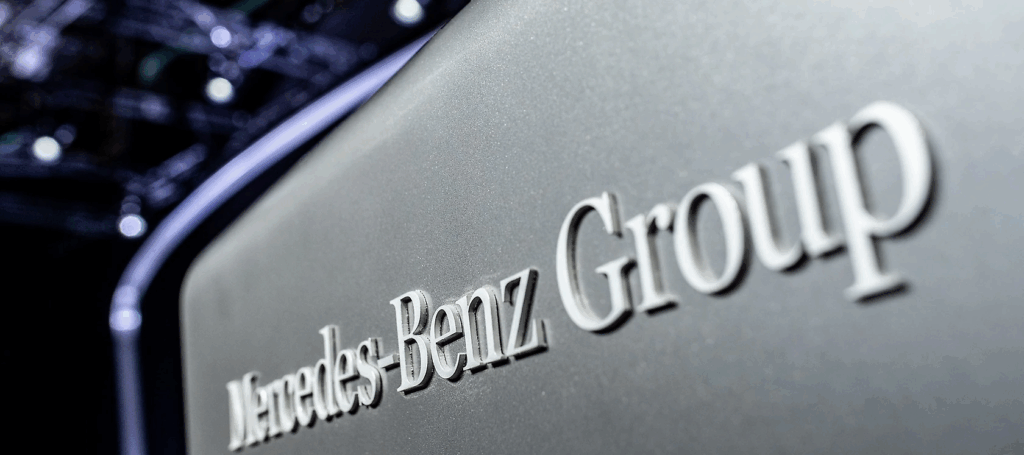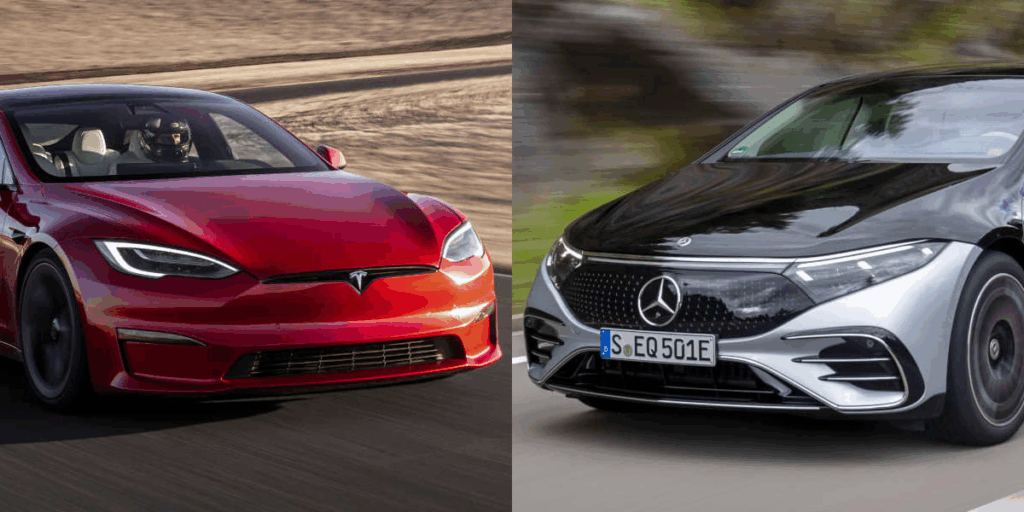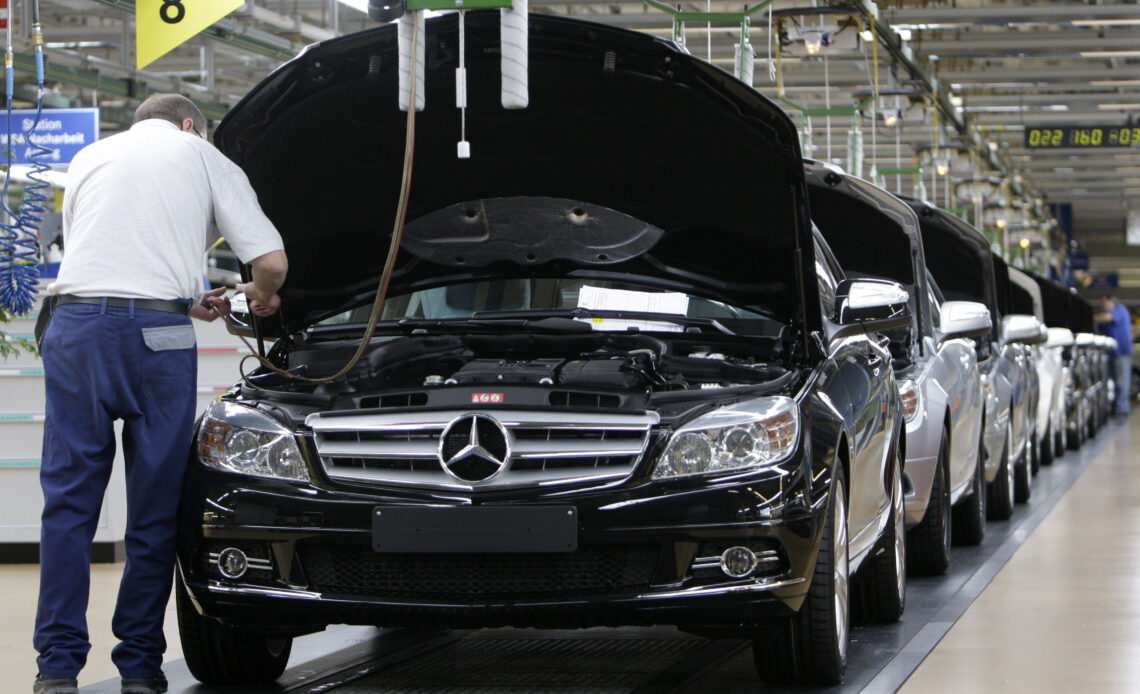🚗 The net profit of the German automaker Mercedes-Benz Group AG for the first nine months of 2025 fell almost by half compared to the same period last year — from €7.8 billion to €3.87 billion. This is stated in the official company report published today, 29.10.2025.
The profit decrease amounted to 50.3%, and according to company representatives, it was due to a combination of factors — from declining demand in key markets to rising costs and changes in trade policies of major economies.

Margin Pressure and Declining Sales
According to the company, adjusted earnings before interest and taxes (EBIT) in Q3 fell to €2 billion from €2.5 billion a year earlier.
Revenue for the same period decreased by 6.9%, to €32.14 billion, while net quarterly profit dropped almost 31% — from €1.71 billion to €1.19 billion.
Key reasons for the decline highlighted by Mercedes-Benz include:
- introduction of additional tariffs and trade restrictions, especially regarding deliveries to the Chinese market;
- slowing sales amid a unstable global economy;
- increased restructuring expenses and efficiency improvement costs.
Company CEO Ola Källenius emphasized that Q3 financial results “align with previously announced forecasts” and reflect the company’s strategic shift toward a more compact and sustainable business model.

China and the U.S. — Weak Links
Weak sales dynamics in China and the U.S. were among the main factors for the decline.
From July to September, Mercedes-Benz delivered 525,300 cars and vans to dealers — 12% less than a year earlier.
Overall, sales volumes for the nine months dropped by 9%, totaling around 1.6 million units.
China, which recently accounted for nearly a third of the company’s global sales, is now showing cooling interest in the premium segment — especially amid growing competition from local EV manufacturers.
In the U.S., Mercedes faces increased competition from Tesla, along with rising credit and insurance costs, reducing consumer activity.

Electrification and the Transition Period
The company continues its course toward electrifying its model lineup, but the shift to mass EV production comes with significant costs.
According to analysts, the Mercedes-Benz Cars division is in a so-called “transition cycle” — investments in new technologies are rising while sales of traditional ICE models are declining faster than expected.
Additionally, financial results are negatively affected by high lithium and other battery material costs, as well as slowing EV demand in Europe due to the cancellation of several subsidies.

Outlook and Forecast
Despite weak quarterly results, the company’s management maintains its 2025 forecast, anticipating a “moderate recovery” of profit in the second half of next year.
The company expects that optimizing production capacity, along with the development of the MB.OS (Mercedes-Benz Operating System) platform and the EQ lineup (electric models), will help stabilize financial performance.

Analysts, however, note that 2025 could be one of the most challenging years for Mercedes-Benz in the last decade, considering high global competition, geopolitical uncertainty, and pressure from Chinese manufacturers.
⚠️ Reference:
Mercedes-Benz Group AG is one of the world’s largest automakers, encompassing the Mercedes-Benz, Maybach, and Smart brands. By the end of 2024, the company sold about 2.4 million vehicles, 4% fewer than the previous year.
All content provided on this website (https://wildinwest.com/) -including attachments, links, or referenced materials — is for informative and entertainment purposes only and should not be considered as financial advice. Third-party materials remain the property of their respective owners.


